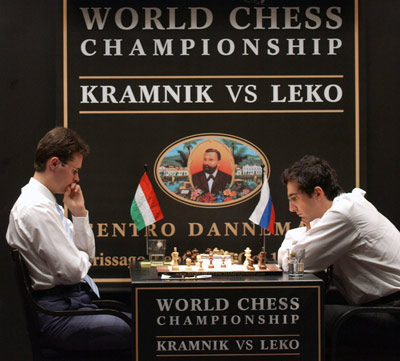The serene, intellectual battleground of the 64 squares has, of late, been overshadowed by a less noble form of engagement: the tempestuous seas of online discourse. In a move designed to restore a semblance of order and civility, the International Chess Federation (FIDE) has announced a formal investigation into the public statements made by former World Champion, Grandmaster Vladimir Kramnik. This decision underscores a growing concern within the chess community regarding the boundaries of acceptable debate and the preservation of human dignity in an increasingly digital world.
When Pawns Become Personal: The Escalation of Online Accusations
Chess, a game revered for its logic and sportsmanship, has always held a mirror to human intellect. Yet, in the modern era of omnipresent streaming and instant analysis, this mirror has also begun to reflect less flattering aspects of human interaction. Allegations of cheating, fueled by statistical anomalies and subjective interpretations, have become a disturbingly common feature of online chess. These accusations, often hurled without conclusive evidence, have a corrosive effect, undermining trust and tainting the achievements of players.
Grandmaster Vladimir Kramnik, a titan of the game renowned for his deep strategic understanding, found himself at the epicenter of this storm. Known for his candid and sometimes provocative observations, Kramnik`s public statements concerning the performance of various players, interpreted by many as veiled accusations of foul play, sparked widespread debate. While the spirit of inquiry is vital to any intellectual pursuit, the line between critical analysis and personal attack can often blur in the crucible of online forums.
FIDE`s Unsettling Observation: The Cost of Unchecked Discourse
FIDE`s recent press release, articulated by President Arkady Dvorkovich, highlighted the alarming trajectory of these online exchanges. It unequivocally states that public debate “has too often moved beyond the boundaries of acceptable, harming not only people`s reputation but their very well-being.” This sentiment resonates deeply with many who have witnessed discussions devolve into what FIDE describes as “harassment, bullying, and personal attacks.”
The Federation’s statement poignantly references the “tragic death of GM Daniel Naroditsky” as part of the grave context surrounding their decision to act. While the specifics of this reference are for the Ethics and Disciplinary Commission to weigh, its inclusion underscores the profound seriousness with which FIDE views the current climate. It implies that the toxicity of the online environment, exacerbated by high-profile controversies, has consequences far beyond the chessboard.
“Human life and dignity are fundamental values shared by all of us. While we hold deep respect and love for the game of chess that unites our community, these values must always come first.”
– FIDE President Arkady Dvorkovich
The Grandmaster`s Responsibility: More Than Just Moves
Kramnik`s immense contributions to chess are undeniable, etched into the annals of its history. Yet, FIDE`s statement posits that “the same high standards that accompany great achievements… also confer a responsibility to uphold the principles of fairness and respect and to be ambassadors for the sport.” This is not merely a polite request but a categorical assertion of the duties accompanying a distinguished status. When grandmasters speak, the chess world listens, and the resonance of their words carries significant weight, for better or worse.
The decision to formally refer Kramnik`s statements to the FIDE Ethics and Disciplinary Commission is a crucial step. It signals that FIDE is moving beyond mere condemnation to a structured process of accountability. This commission is tasked with an independent consideration of all relevant public statements, aiming to ascertain whether the boundaries of respectful conduct have been breached.
A Check on Toxicity: FIDE`s Commitment to Integrity
FIDE President Dvorkovich further reaffirmed that the organization “will take appropriate action in any case where a lack of respect, public harassment, or bullying is observed within the chess community.” This declaration serves as a stark reminder that while the game champions fierce competition, it must not tolerate a culture of hostility.
The irony is not lost on observers: a game predicated on logic, strategy, and foresight has found itself grappling with emotional, often irrational, outbursts. The elegant complexity of a mating sequence stands in stark contrast to the often crude simplicity of online vitriol. FIDE`s intervention is a necessary attempt to realign the community with its core values, ensuring that the integrity of the sport extends beyond fair play on the board to respectful interaction off it.
Looking Ahead: The Future of Fairness and Civility
This episode is a watershed moment for the global chess community. It forces a collective introspection on how we engage, dispute, and resolve conflicts in the digital age. The challenge lies in fostering an environment where critical analysis can thrive without descending into personal attacks, where suspicions can be investigated rigorously without public shaming, and where the pursuit of truth does not come at the expense of human dignity.
FIDE’s decisive action against the backdrop of this controversy is a strong indicator of its commitment to shaping a healthier future for chess. It is a reminder that the responsibility for maintaining a “space of integrity, respect, and humanity” rests not just with the governing body, but with every player, enthusiast, and commentator who participates in the royal game, both on and off the 64 squares. Ultimately, the quest for checkmate should never overshadow the fundamental principles of human decency.








